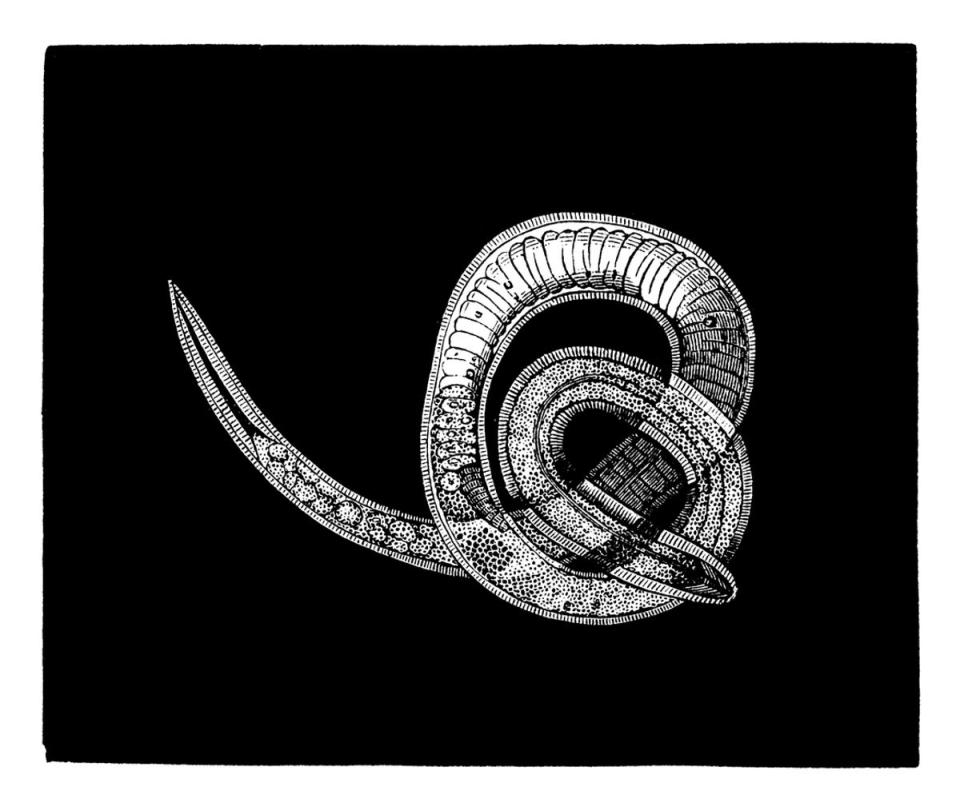Six people became infected with a parasite known as “brain worms” after eating undercooked black bear meat, or food cross-contaminated with the meat, at a family reunion in 2022 – the Center for Disease Control (CDC) said in a new report.
In May 2022 a group of nine family members met in South Dakota and shared kebabs made from the meat of a black bear and vegetables. Earlier that month, one of the family members harvested the meat in northern Saskatchewan, Canada.
At the advice of a hunting outfitter, the family member froze the meat in a household freezer for 45 days to kill parasites. The family then thawed the meat and grilled it with the vegetables, according to the CDC.
However, the meat was accidentally served undercooked. Months later, family members presented to doctors or hospitals with symptoms consistent with the parasitic infection trichinellosis otherwise known as brain worms.
After health officials reported the infection the CDC investigated it. Now, the health agency is reminding people to cook their meat to an internal temperature of ≥165°F (≥74°C).

Some states, like Minnesota, require healthcare providers to report cases of trichinellosis to the state Department of Health.
Healthcare providers did exactly that in July 2022 when a 29-year-old man presented to a hospital with symptoms consistent with trichinellosis: a fever, severe aches, swollen eyes and a high count of white blood cells among other abnormal labs.
It was the second time the man was hospitalized and the fourth time he was seeking care for his symptoms which began in early July. It was only then that he informed healthcare providers he ate bear meat.
Trichinellosis is a relatively rare parasitic disease that typically develops from eating rare or undercooked meat from wild animals. Parasites, known as roundworms, infect parts of the body and reproduce, causing illness.
About 90 per cent of cases in the United States come from bears.


During the May 2022 family gathering, only five of the nine family members ate the bear meat while eight consumed the vegetables it was cooked with.
Those who consumed the bear meat recognized it was undercooked after consuming it – they reported it was difficult to tell if it was cooked thoroughly before eating due to its dark color. They put the bear meat back on the grill to cook after realizing it was rare but it was too late.
After investigation, the CDC found six of the eight people, including the man hospitalized, had symptoms consistent with trichinellosis – four who ate the meat and two who only consumed the vegetables. Their ages ranged from 12 to 62 years old with one living in Arizona, four living in Minnesota and one living in South Dakota.
Three people required trichinellosis-directed treatment but two others recovered on their own.
Testing conducted on the bear meat, which had been frozen for 110 days in the household freezer, revealed freeze-resistant trichinella larvae. The person who had the meat was instructed to discard it.
The CDC recommends that the best way to prevent trichinellosis is to cook meat thoroughly and use a meat thermometer to ensure it is done.
Additionally, those handling raw meat should wash their hands with warm water and soap before preparing and clean any tools used thoroughly after use.
Source Agencies

